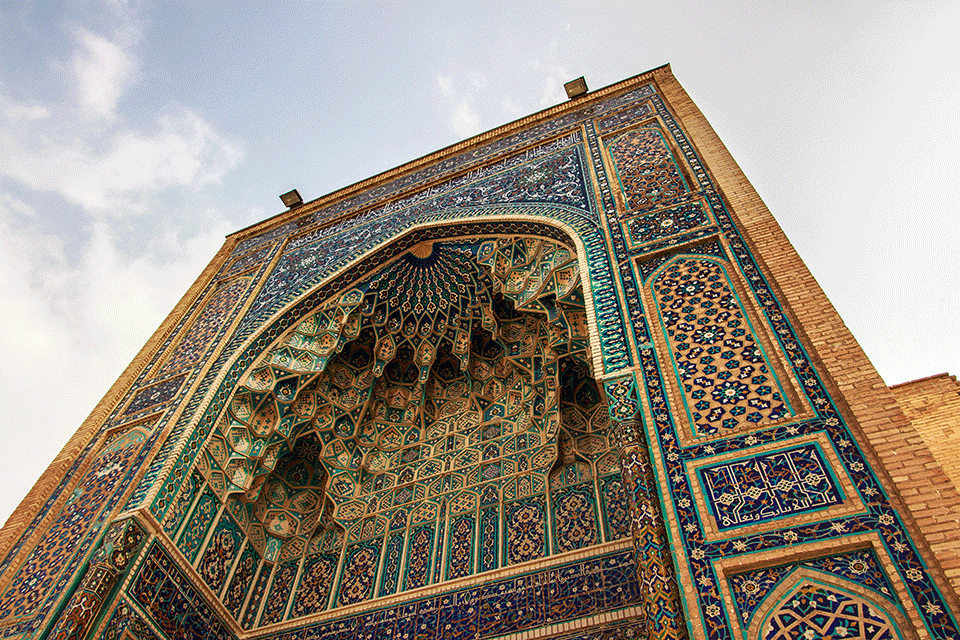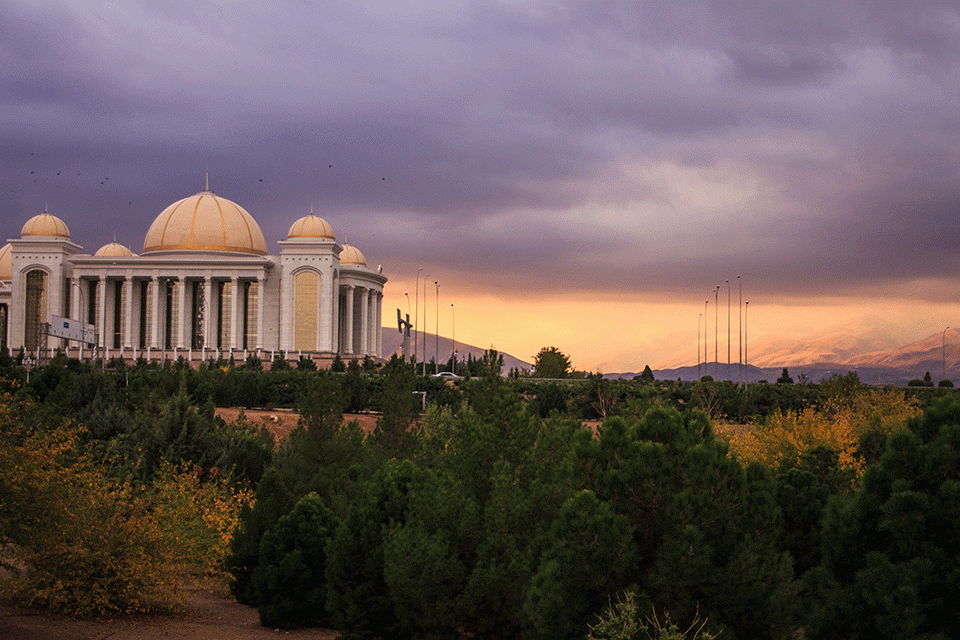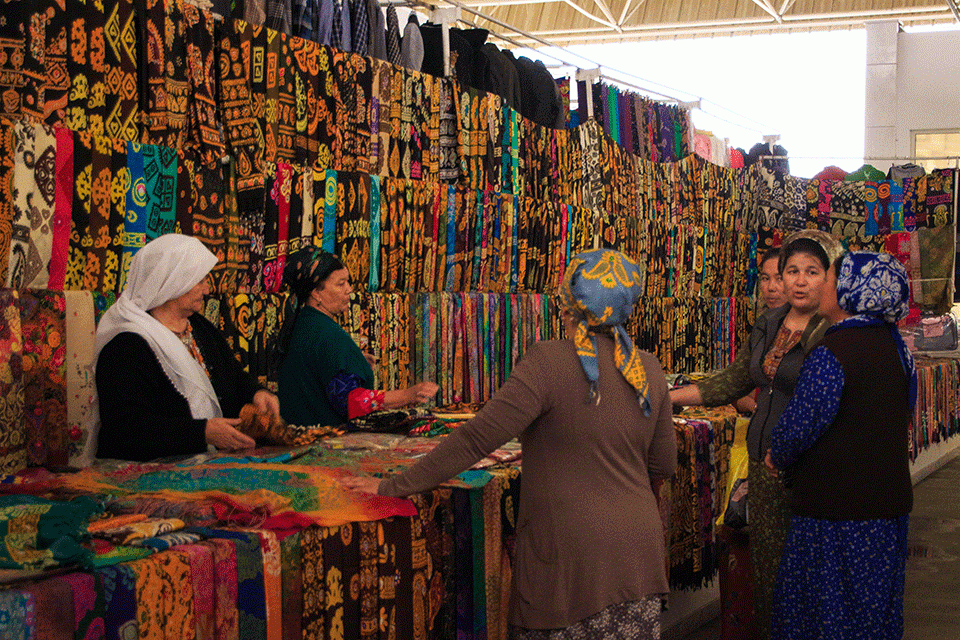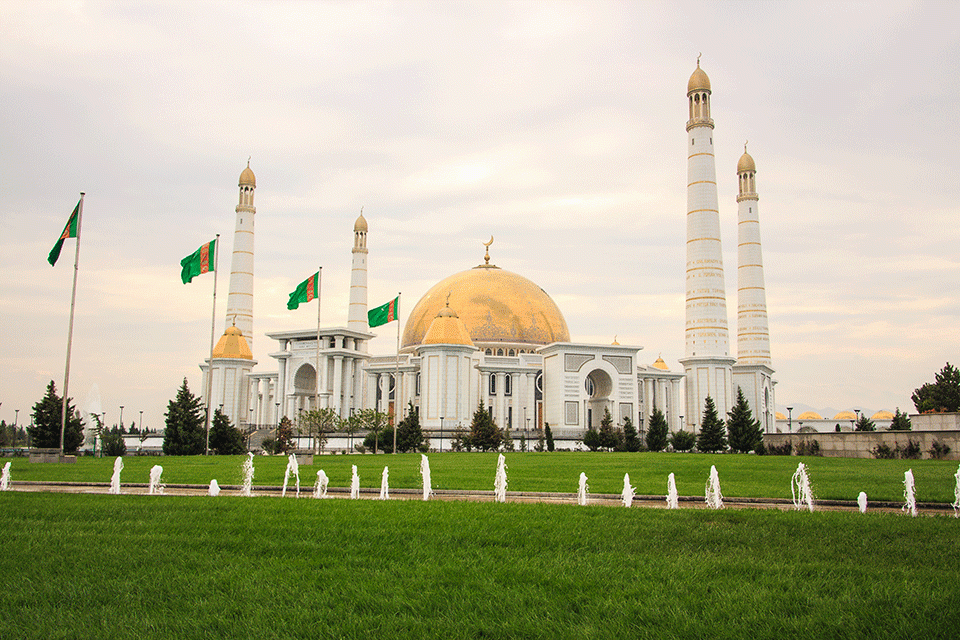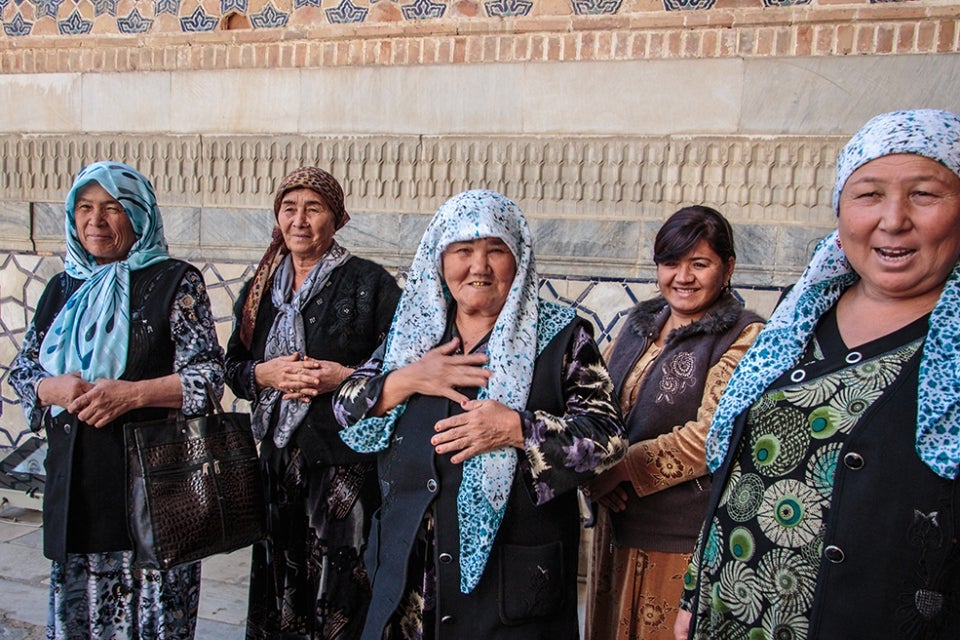Trip Overview
Commence in Bishkek, Kyrgyzstan's capital, engaging with local students and professors. Next, venture to Almaty, the economic hub of Kazakhstan, rich in oil resources. Travel south immerse in Uzbekistan's UNESCO-listed Silk Road oasis cities: Samarkand, Bukhara, and Khiva. You’ll also take a day trip to view the ancient Sogdian ruins outside of Panjakent, Tajikistan. Then cross the desert expanse and conclude this odyssey in Turkmenistan, where contemporary marble-clad architecture contrasts with the timeless sands of the Kara Kum Desert.
Schedule by Day
Pricing
- $9,995 per person double occupancy
- $1,775 single supplement
Accommodations
- Three nights at the Hotel Intercontinental Almaty
- Two nights at the Hyatt Regency Bishkek
- Two nights at the Hyatt Regency Tashkent
- Three nights at the Movenpick Samarkand
- Three nights at the Wyndham Kukhara
- Two nights at the Farovon Hotel
- Two nights at the Divan Hotel
What to Expect
This trip is rated as rigorous touring due to the substantial distances covered, the length of some bus rides, the extensive walking and stair climbing required, and the overall shortcomings of the tourism infrastructure. The itinerary features a significant amount of touring on foot. Many streets are made of packed dirt, and some attractions are only accessible via steep staircases with tall uneven steps. Some other sites and hotels may not offer elevators. Border crossings may require crossing a relatively long distance by foot while managing your own bags—up to about a half-mile. Bags may need to be carried during these crossings, rather than rolled, as the road/sidewalk surface is not always paved or smooth. To fully enjoy this adventure, travelers must be able to walk at least two miles a day; flexibility and a willingness to accept local standards of amenities and services are highly recommended as well. It is important to keep in mind that the countries of Central Asia are, in general, not up to the standards North American travelers expect. Services are improving in the region; nevertheless, you may encounter problems with plumbing, bureaucratic service, road conditions, unpaved sidewalks, uneven surfaces and steps, variety of locally available foods, and availability and quality of public restrooms. In true expedition style, some delays or changes in the itinerary are likely.
